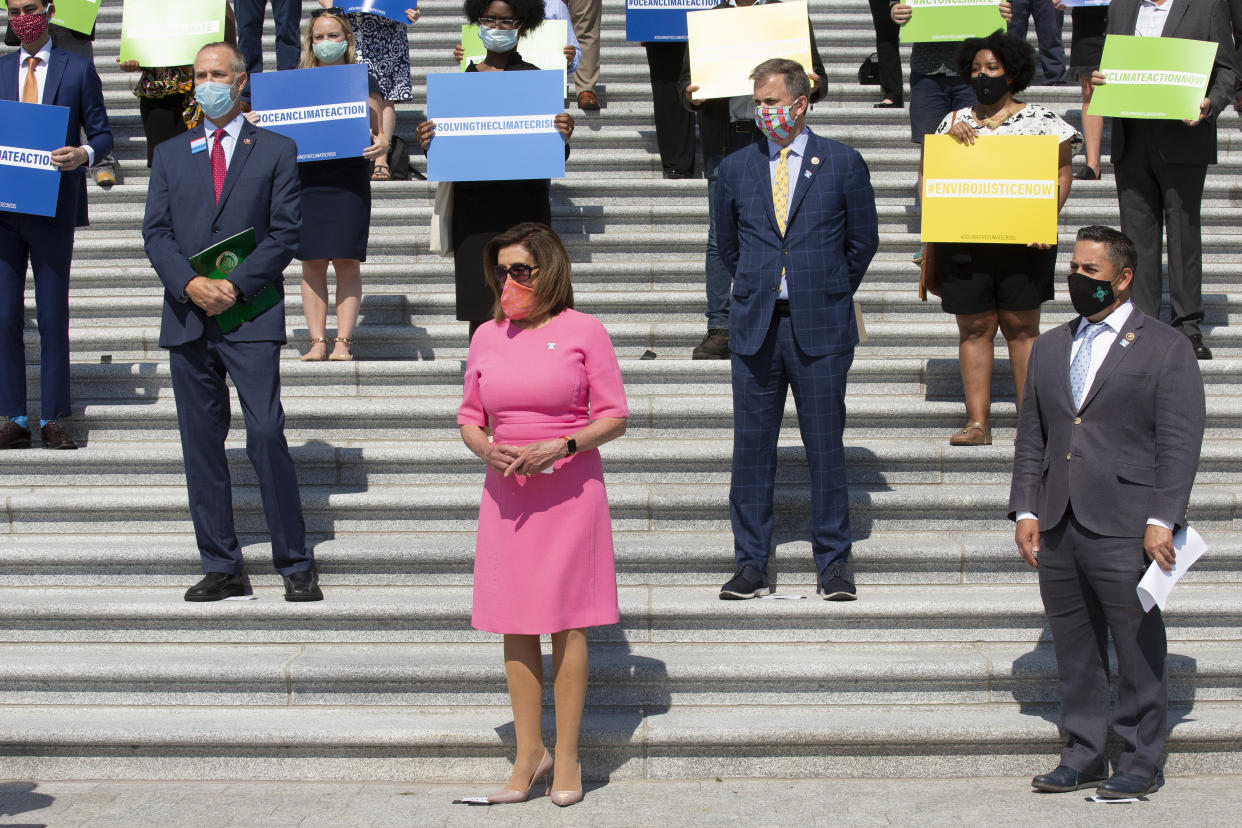How House Democrats plan to attack climate change
Congressional Democrats laid out a series of proposals Monday on how to combat climate change as part of the $3.5 trillion budget package bill currently being negotiated.
The Build Back Better Act, as President Biden’s proposal to invest in U.S. infrastructure is known, was introduced in the House Energy and Commerce Committee and places mitigating and adapting to climate change at its center.
“Natural disasters cost Americans a record-shattering $95 billion in damages last year, and they are expected to be even higher this year,” said committee Chair Frank Pallone Jr., D-N.J., in his opening remarks on Monday. “Bold action is clearly needed — the days of incremental change are long gone.”
The most high profile of these measures include a first-ever federal fee for climate pollution by power plants, a fee on methane emissions by oil and gas producers and billions of dollars for everyone from homeowners to state and local governments to invest in energy efficiency.
In the run-up to crucial negotiations at the United Nations Climate Change Conference in Glasgow, Scotland, this November, how much the United States — the world’s largest economy and biggest per capita greenhouse gas emitter — commits to reducing its emissions could have a significant effect on the strength of the next global agreement.

While Democratic centrists like Sen. Joe Manchin of West Virginia have indicated that they will block any bill as large as Biden’s proposal, House Democrats have continued to demand a robust response to climate change.
To that end, here are the most notable climate and energy provisions and expenditures in the current version of the House bill:
To help meet the White House’s goal of cutting planet-warming greenhouse gas pollution in half by 2030, $150 billion over 10 years would be set aside for providing utilities with carrots and sticks. Power companies that increase their clean energy production by 4 percent over the previous year would receive a grant, while those that fail to meet the benchmark would owe a payment. (The size of payments in either direction would be based on the amount by which the company exceeded or fell short of the 4 percent threshold.) Based on the allowable amount of carbon dioxide, no fossil fuels such as coal, oil and gas would be defined as clean energy. The purpose would be to promote solar, wind, nuclear and hydropower.
A $27.5 billion Greenhouse Gas Reduction Fund would help deploy low- and zero-emission technologies. If, say, a local government or nonprofit organization wants to put a solar array on a public building, this program could support that.
$5 billion to subsidize the purchase of electric vehicles for federal, state and local governments. These funds and several others in the bill have a portion set aside to be spent specifically in areas with lower air quality, which tend to be lower-income, inner-city communities of color.
$3.5 billion in grants and rebates for technology that reduces emissions from ports, for example by capturing the emissions from ships when they are docked.
$9 billion for rebates to homeowners for energy-efficient renovations.
$9 billion for homeowners, focused on low- and moderate-income communities and Native American tribes, to convert systems that currently burn oil or gas, such as heat and hot water, to electricity.
A fee for methane — an especially harmful greenhouse gas — emitted by natural gas and oil drilling, storage and transmission facilities. The problem of methane leakage has become more worrisome in recent years, as the fracking boom has led to more domestic oil and gas production and studies have found that more methane leaks into the atmosphere from these operations than previously estimated.
The bill also contains a number of provisions for monitoring, enforcing regulation of and building infrastructure to handle conventional environmental problems such as air and water pollution, some of which are being exacerbated by climate change.
It’s a given that some programs will be reduced or eliminated in the delicate negotiations with moderates like Manchin, but if the proposal passed in its entirety it would be the biggest federal climate action to date.
____
Read more from Yahoo News:


